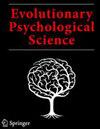没有证据反对更大的男性变异性假说:对Harrison等人(2022)动物个性荟萃分析的评论
IF 1.4
Q3 PSYCHOLOGY, MULTIDISCIPLINARY
引用次数: 5
摘要
在最近的荟萃分析中,Harrison等人(2022;《生物评论》,97,679-707)开始在非人类动物身上测试男性性格差异较大的假设。基于他们的不显著的结果,他们得出结论,没有证据支持这一假设,对于男性在人类心理特征上更大差异的生物学解释应该受到质疑。在这里,我们证明这些结论是没有根据的。具体而言:(a)在哺乳动物、鸟类和爬行动物/两栖动物中,荟萃分析中发现的变异性性别差异的幅度与先前在人类和非人类动物中发现的结果完全一致;(b)普遍缺乏统计显著性并不意味着效应量太小而不能被认为是有意义的,因为该研究在合理范围内检测效应量的能力严重不足;(c)元分析的结果可能低估了人格变异性中性别差异的真实程度,因为大多数原始研究中使用的行为测量包含大量的测量误差;(d)基于人格分数、延迟和比例的可变性效应大小缺乏统计有效性,给元分析增加了更多的噪音。总的来说,哈里森等人的研究并没有反驳哺乳动物中男性差异较大的假说,更不用说人类了。在某种程度上,它们是有效的,这些数据仍然与广泛的似是而非的情景兼容。本文章由计算机程序翻译,如有差异,请以英文原文为准。

No Evidence Against the Greater Male Variability Hypothesis: A Commentary on Harrison et al.’s (2022) Meta-Analysis of Animal Personality
In a recent meta-analysis, Harrison et al. (2022; Biological Reviews, 97, 679–707) set out to test the greater male variability hypothesis with respect to personality in non-human animals. Based on their non-significant results, they concluded that there is no evidence to support the hypothesis, and that biological explanations for greater male variability in human psychological traits should be called into question. Here, we show that these conclusions are unwarranted. Specifically: (a) in mammals, birds, and reptiles/amphibians, the magnitude of the sex differences in variability found in the meta-analysis is entirely in line with previous findings from both humans and non-human animals; (b) the generalized lack of statistical significance does not imply that effect sizes were too small to be considered meaningful, as the study was severely underpowered to detect effect sizes in the plausible range; (c) the results of the meta-analysis can be expected to underestimate the true magnitude of sex differences in the variability of personality, because the behavioral measures employed in most of the original studies contain large amounts of measurement error; and (d) variability effect sizes based on personality scores, latencies, and proportions suffer from lack of statistical validity, adding even more noise to the meta-analysis. In total, Harrison et al.’s study does nothing to disprove the greater male variability hypothesis in mammals, let alone in humans. To the extent that they are valid, the data remain compatible with a wide range of plausible scenarios.
求助全文
通过发布文献求助,成功后即可免费获取论文全文。
去求助
来源期刊

Evolutionary Psychological Science
Psychology-Social Psychology
CiteScore
2.60
自引率
13.30%
发文量
33
期刊介绍:
Evolutionary Psychological Science is an international, interdisciplinary journal that publishes empirical research, theoretical contributions, literature reviews, and commentaries addressing human evolved psychology and behavior. The Journal especially welcomes submissions on non-humans that inform human psychology and behavior, as well as submissions that address clinical implications and applications of an evolutionary perspective. The Journal is informed by all the social and life sciences, including anthropology, biology, criminology, law, medicine, philosophy, political science, and the humanities, and welcomes contributions from these and related fields that contribute to the understanding of human evolved psychology and behavior. Submissions should not exceed 10,000 words, all inclusive.
 求助内容:
求助内容: 应助结果提醒方式:
应助结果提醒方式:


